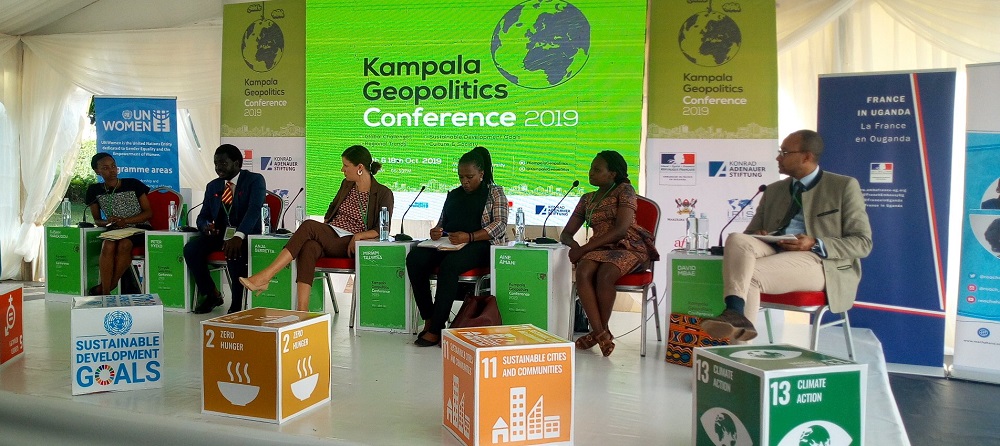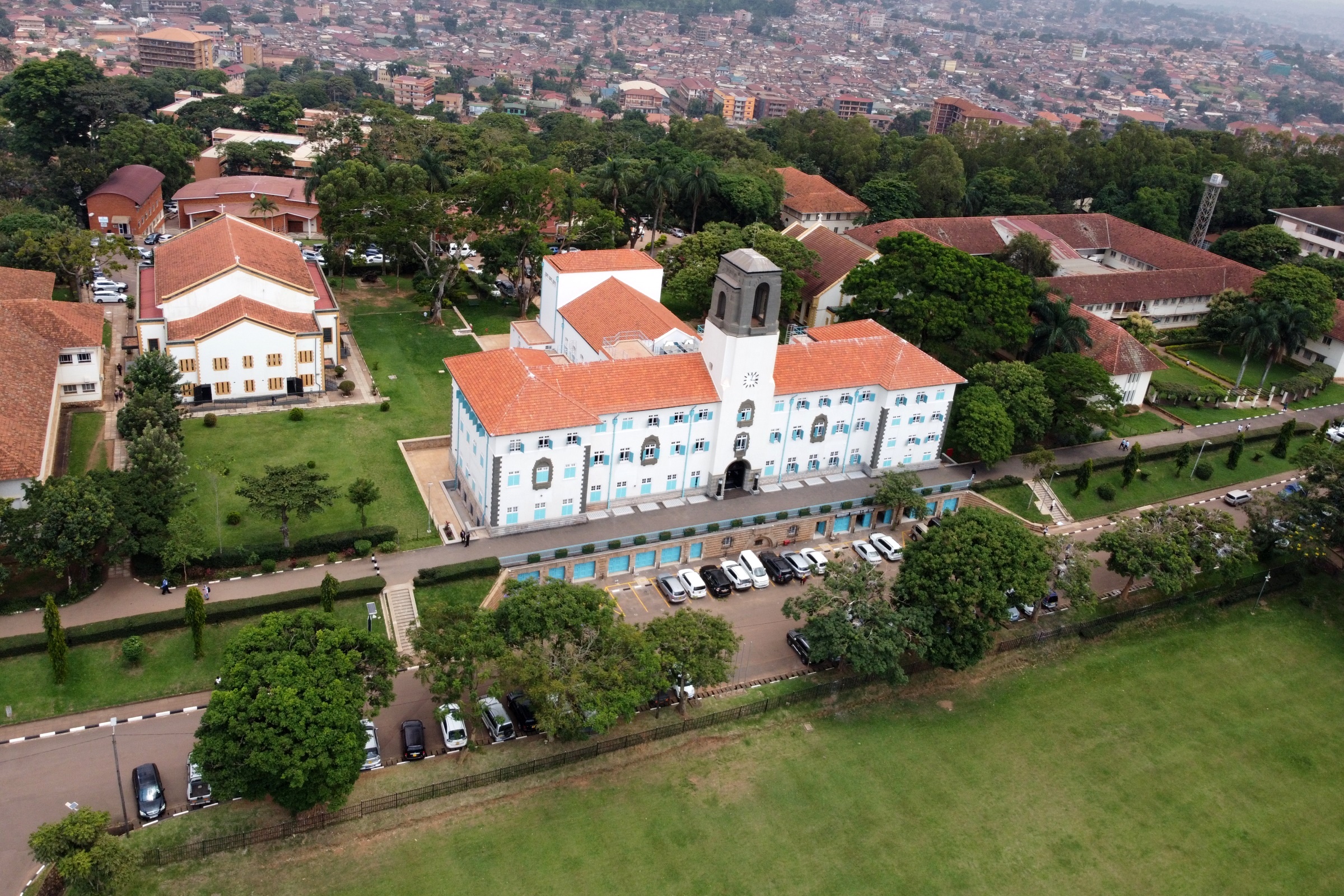The Second Kampala Geopolitics Conference was officially opened by the Ambassador of France to Uganda H.E Jules-Armand Aniambossou on 17th October 2019 in the Makerere University Main Hall. The event, attracted professors, researchers, politicians, diplomats, journalists, activists and key leaders from various countries around world to engage in an interactive debate on contemporary local and international issues.

Charles Onyango-Obbo’s rich keynote address opened doors for a discussion on the critical role of Africa and its culture in the geopolitical space. He triggered the audience’s minds to understand Africa at the extreme sides of benefits and losses using the Kategaya Doctrine; Africa in the world and the world in Africa.
According to Onyango-Obbo, Africa has a place in geopolitics defined by its natural resources and culture. Citing the Great Green Wall as one of Africa’s biggest contribution to the world, the legendary journalist said, “We are not as helpless as we seem, we have a greater good to give to the world, The Great Green Wall is a symbol of hope in the face of our biggest challenges of our time.”

The presentation was further enriched by several speakers discussing the role of Africa in various perspectives such as; technology, gender, economy, politics, culture among others.
The Second Kampala Geopolitics Conference was organized by the Embassy of France in Uganda in partnership with Makerere University, Konrad Adenauer-Stiftung (KAS), Alliance Française de Kampala (AFK), UN Women, the Institute for International and Strategic Affairs (iRiS) and Reach A Hand Uganda.

Mr. Mathias Kamp the Country Representative, KAS Uganda and South Sudan shared that the two days’ Event (17th and 18th October 2019) also aimed at training the young generation to embrace and promote the culture of academic debate at a global level.
He said that the Kampala Geopolitics Conference is not just an event but an institution on its own. He added that Kampala Geopolitics is the grand platform for KAS Uganda and South Sudan to bring its Think Tank Network from around the world to Makerere University to debate various topics related to geopolitics.

Addressing dignitaries, international delegates and participants in the Makerere University Main Hall, H.E Jules-Armand Aniambossou cited the need for a new model to balance the world away from nationalism and unilateralism. According to him, the model must be based on new forms of regional and international cooperation in the respect of sovereignty.
“Universal values such as human rights, dignity and gender equality are also very important and to implement these values, we need to work on access to education, basic care and sustainable development. The battle is in front of us and that is the reason why France has decided to increase its development and humanitarian assistance,” he mentioned.

H.E. Aniambossou reiterated the French President, H.E. Emmanuel Macron’s statement that, “there is hope to save future generation from war by building world order based on law and helping humanity to move towards economic and social progress.”
The Vice Chancellor of Makerere University Prof. Barnabas Nawangwe applauded African scholars for preserving and marketing African culture on the global map. The Vice Chancellor said that there is need for African universities to document the rich African history and the way it is influencing the people’s behavior globally.

“We are now truly part of the global economy and politics. We can no longer sit on one side and the world can no longer imagine that they will continue marginalizing Africans,” he said
With the captivating engagement, the participants were ushered into panel discussions on the following topics:
Diverse Power Struggle: transition to a multipolar political landscape
Who is Stealing Africa’s Wealth: Investment, trade and exploitation on the continent
Smart Cities for a Smarter Future: Urban trends transforming our daily lives
Happily, Ever After: Aftermath of revolution and uprising
Energy is the Key: Powering Africa’s economic transformation
World without Hunger: Utopia or a matter of time?
On Friday 18th October 2019, the following topics will be discussed;
The Machines are taking over: How robotics and Al will transform our societies?
The United States of Africa: Where is African Unity heading?
Major Targets, Minor Voices: Reflecting on conflicts through a female lens
Stealing the show: Are non-state actors ruling Global Governance?
Destructive Allies, Supportive Enemies? Revealing political influence of the Red Sea Arena
The Future of Aid: Administering the bitter medicine?
Other activities lined up included: art performances, market place of art and ideas, live studio by Media Challenge Initiative, exhibitions by artists, innovators and start-ups, students and youth-led initiatives and a democracy expo by Konrad Adenauer-Stiftung, Alliance Française De Kampala and Campus France.
Article by Nabatte Proscovia, Mak Public Relations Office.

 General1 week ago
General1 week ago
 General1 week ago
General1 week ago
 General3 days ago
General3 days ago
 Natural Sciences3 days ago
Natural Sciences3 days ago
 Health5 days ago
Health5 days ago









